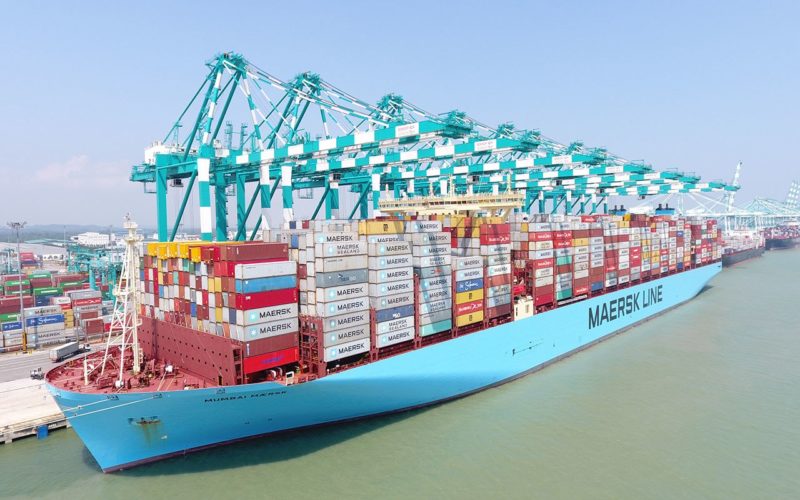
Container shipping heavyweight Maersk has signed a shipbuilding contract with Hyundai Mipo Dockyard for the construction of a feeder vessel with a dual-engine technology enabling it to sail on either methanol or traditional very low sulphur fuel.
Maersk announced the intention to order the vessel in February 2021, saying that the carbon-neutral liner vessel would be launched in 2023, seven years ahead of the company’s initial 2030-ambition.
“This groundbreaking container vessel shows that scalable solutions to properly solve shipping’s emissions challenge are available already today. From 2023 it will give us valuable experience in operating the container vessels of the future while offering a truly carbon neutral product for our many customers who look to us for help to decarbonize their supply chains,” says Henriette Hallberg Thygesen, CEO of Fleet & Strategic Brands, A.P. Moller – Maersk.
The feeder will be 172 meters long and will sail in the network of Sealand Europe, a Maersk subsidiary, on the Baltic shipping route between Northern Europe and the Bay of Bothnia.
As disclosed, the methanol propulsion configuration for the vessel will be developed by MAN Energy Solutions and Hyundai Engine and Machinery (main engine) and Himsen (aux engine) in collaboration with Hyundai Mipo and Maersk. The vessel will be classed by the American Bureau of Shipping.
”Developing this vessel is a significant challenge, but we have already come a long way in our work with the yard and the makers to reach this milestone. While we are pioneering these solutions for our industry, we are working with well-proven technologies and the cost potential from further scaling is becoming very clear to us,” says Ole Graa Jakobsen, Head of Fleet Technology, A.P. Moller – Maersk.
Maersk has stood its ground on preferring to switch its ships to zero-emission alternatives to fossil fuels rather than choosing LNG as a bridging fuel for the company’s fleet.
Hence, when it comes to investments, the container shipping major has vowed to order solely dual-fuel ships in the future, which will be capable of running on a zero-carbon fuel.